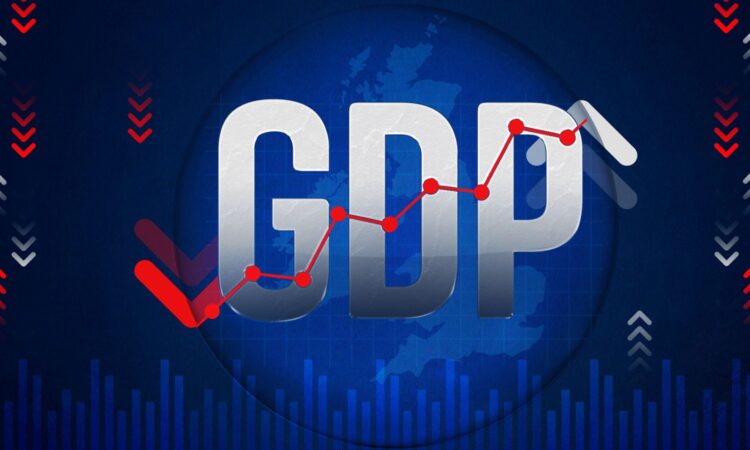
Gross domestic product increased by 0.2% in the second quarter and by 0.5% in June – following a dip the previous month when an extra bank holiday was held for the King’s coronation.
By Daniel Binns, business reporter
The UK economy grew slightly in the three months to June, according to official estimates.
Gross domestic product (GDP) increased by 0.2% in the second quarter of the year, the Office for National Statistics (ONS) said. In June alone it rose 0.5%.
It comes after a rate of 0.1% was recorded in the first quarter, the lowest amount possible to still be classed as growth.
Experts said the economy had bounced back in June following a dip the previous month, when an extra bank holiday was held to celebrate the King’s coronation.
Darren Morgan, the ONS’s director of economic statistics, said: “Manufacturing saw a particularly strong month with both cars and the often-erratic pharmaceutical industry seeing particularly buoyant growth.
“Services also had a strong month with publishing and car sales and legal services all doing well, though this was partially offset by falls in health, which was hit by further strike action.”
Read more: Cost of living – latest: Price of car insurance hits record high
Sky’s business correspondent Paul Kelso discusses the figures
He added: “Construction also grew strongly, as did pubs and restaurants, with both aided by the hot weather.”
The Bank of England has forecast that the UK will likely avoid recession in 2023 but suggested the economy will effectively flatline for the next few years.
It recently hiked interest rates for the 14th time in a row to 5.25% as it attempts to bring down inflation.
The rate of inflation fell by a bigger-than-expected drop in June but still remains high at 7.9%.
Chancellor Jeremy Hunt told Sky News last week that the UK, along with Europe, the US, Canada and Japan, were “all in a low growth trap that we need to get out of”.
He added: “What you’ll see from me in the autumn statement is a plan that shows how we break out of that low growth trap and make ourselves into one of the most entrepreneurial economies in the world.”
‘Strong foundations’
The new data puts the UK on a good course to avoid recession this year, which is defined as two quarters in a row when GDP shrinks.
However, there are still concerns about the longer-term outlook for the economy. A report by thinktank the National Institute of Economic and Social Research warned earlier this week there was a “60% risk” of a recession in 2024.
It said the UK was also set to experience five years of “lost” economic growth, while “elevated housing, energy and food costs” would likely continue into next year.
ONS publishes GDP data every month, which aims to measure the sum total of everything produced in the economy.
However the indicator has faced criticism for failing to include some parts of the economy, such as the contribution of unpaid carers.
Commenting on the latest figures, Mr Hunt said: “The actions we’re taking to fight inflation are starting to take effect, which means we’re laying the strong foundations needed to grow the economy.
“The Bank of England are now forecasting that we will avoid recession, and if we stick to our plan to help people into work and boost business investment, the IMF have said over the longer-term we will grow faster than Germany, France and Italy.”





